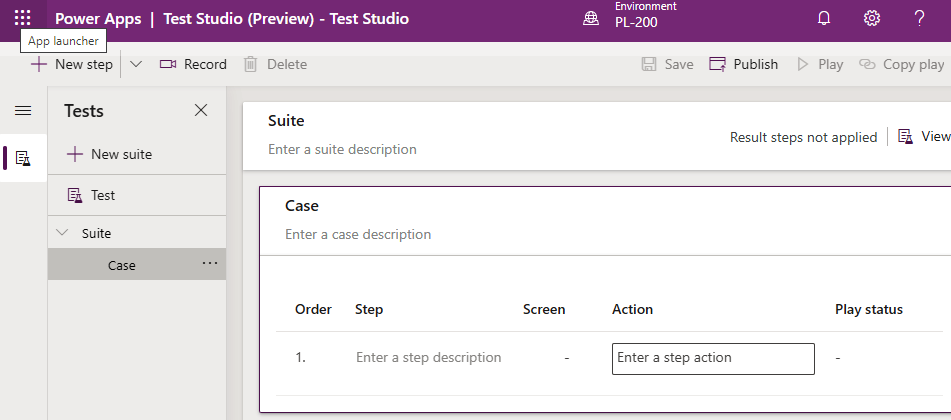Testing is an important part of developing apps. You should test your app to make sure it works as expected. You should use different sets of data to test your app, including data that is incomplete and incorrect, to make sure all errors are handled correctly.
Test Studio is a browser-based automated user interface test system for canvas apps. Test Studio enables you to create and run a set of tests. You can re-run the tests after each change you make to the app. This is known as regression testing.
Test Studio contains the following components:
- Test cases: The set of steps to be performed
- Test suites: Groups of test cases
- Test assertions: Assertions that evaluate the expected results with a pass or fail expression
The following screenshot shows Test Studio in a browser:

Figure 10.12 – Test Studio
Test Studio is a useful tool that improves the quality of your app. Once you have completed testing, you can now deploy your app.



